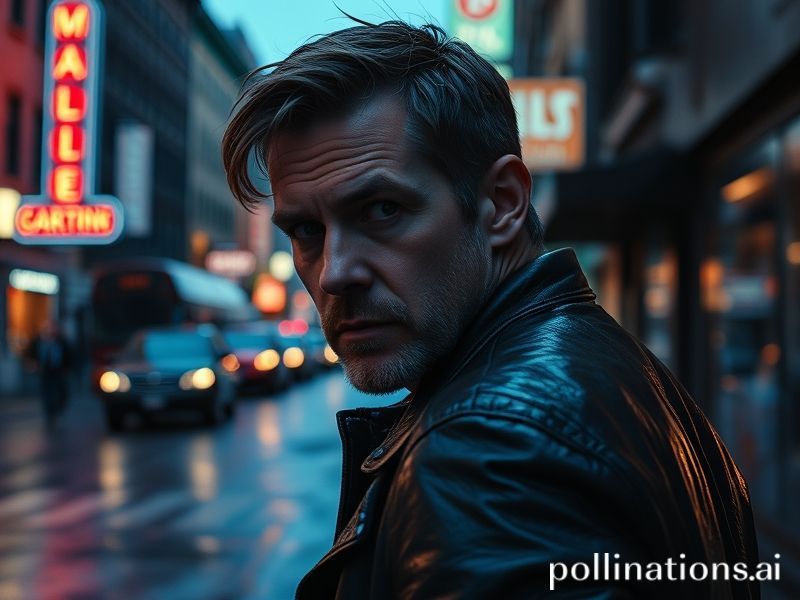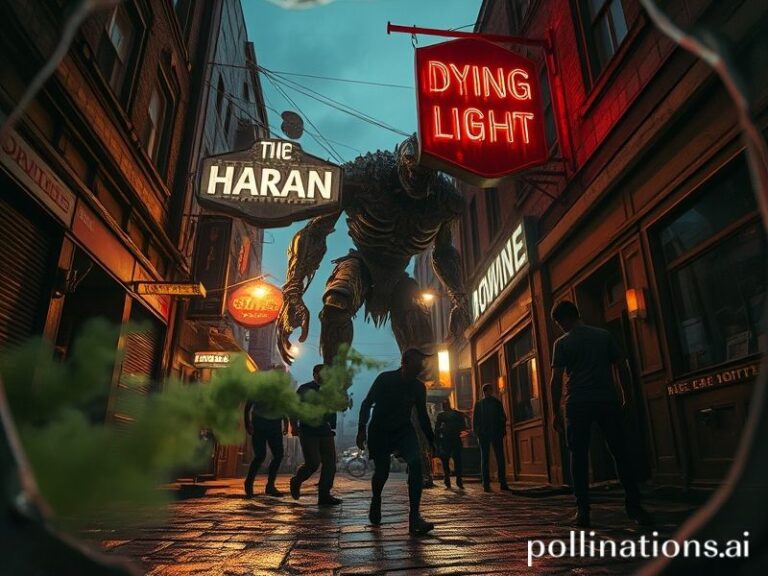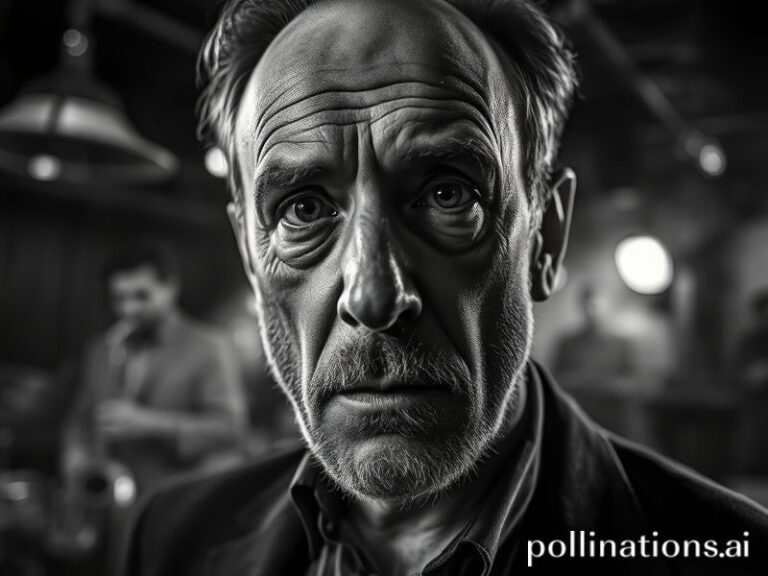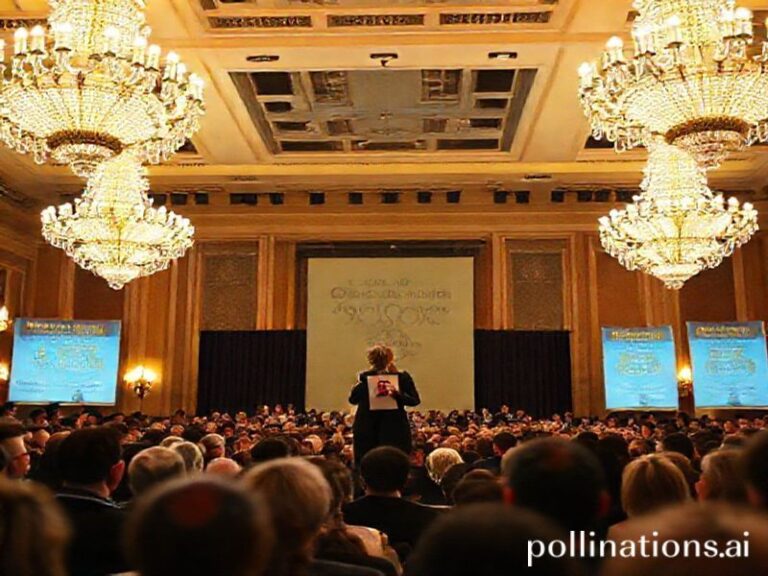Charlie Hunnam, Reluctant Global Icon: How a Newcastle Gym Rat Became Streaming’s Last Gentleman Outlaw
In the grand bazaar of global celebrity, where reputations are traded like volatile crypto and yesterday’s heart-throb is tomorrow’s trivia question, Charlie Hunnam remains an oddly stable currency—neither soaring meme-stock nor crashing penny share, but the quietly appreciating index fund you forgot you owned. The 43-year-old Brit—raised on a Newcastle council estate, polished in Hollywood’s inexhaustible tumbler—has become the poster child for a very 21st-century archetype: the reluctant movie star who keeps threatening to quit acting to build chicken coops in the desert.
Hunnam’s latest gambit is the Apple TV+ series “Shantaram,” an adaptation so expensive it could have financed a small Balkan war. The show’s premise—an Australian junkie who reinvents himself as a slum doctor in 1980s Bombay—smells of vintage Orientalism, yet Hunnam plays it with the earnest furrow of a man who’s read one whole book on India and feels terrible about colonialism. International critics from Mumbai to Milan have rolled their eyes in perfect synchrony, but the algorithmic gods at Apple insist the series is “performing strongly in 64 territories,” which is corporate speak for “we’re hoping no one looks at the actual numbers.” Still, the mere existence of “Shantaram” proves a larger point: streaming platforms will throw Scrooge-McDuck money at any white-boy redemption fable if it promises passport-stamp authenticity and a few lingering shots of abject poverty softened by golden-hour lighting.
Zoom out and you’ll see Hunnam as a geopolitical weather vane. When he first swaggered onto the scene in “Queer as Folk,” Britain was busy rebranding itself as Cool Britannia, exporting lad culture and lad mags like imperial opium. Two decades later, post-Brexit Britain now exports Hunnam as a ruggedly apologetic emissary—less “Rule Britannia,” more “Sorry We Crashed the Economy, Fancy a Pint?” His muscled torso has become a soft-power projection screen: in China, state media praised his “discipline” while censoring the tattoos; in Brazil, his Jax Teller cosplay inspired a thousand favela motorbike gangs who’ve never heard of Stockton, California but understand the universal language of leather vests and daddy issues.
Meanwhile, the planet smolders. Climate summits collapse into performative finger-wagging, crypto empires evaporate overnight, and yet Hunnam persists, jogging shirtless through a Los Angeles heat dome that could melt a lesser Brit into Earl Grey. There’s something grimly comic about watching him train for roles that require 4-percent body fat while the Colorado River dries up like a botoxed forehead. One imagines him doing push-ups atop a sandbar that used to be Lake Mead, whispering motivational slogans to a lone carp gasping for relevance.
Still, give the man credit: unlike many of his contemporaries, Hunnam hasn’t yet launched a wellness grift or an artisanal tequila brand. His most controversial business venture appears to be a half-hearted attempt at carpentry, which in celebrity terms is practically monastic. In an age when actors hawk NFTs of their own sighs, a famous person building actual shelves feels almost subversive—like discovering your hedge-fund manager moonlights as a lighthouse keeper.
What does it all mean for you, dear Dave’s Locker reader, scrolling doom-fatigued in a queue that smells of hand sanitizer and broken dreams? Perhaps only this: Charlie Hunnam is the rare commodity we can still project onto without feeling immediately fleeced. He’s handsome enough to distract from inflation graphs, foreign enough to feel exotic in Dubuque, yet sufficiently repentant about his privilege to pass the 2024 vibe check. He won’t save the world—he can’t even save the season-two renewal odds for “Shantaram”—but for two binge-watched hours he’ll let you pretend redemption is just one motorcycle ride across a photogenic border away.
And when the credits roll and the screen snaps back to the latest push-alert about melting glaciers or rogue A.I., you’ll still have that lingering image: a boy from Newcastle who learned to speak fluent American Sincerity, pedaling absolution to a planet that’s long since pawned its own. It’s not much, but in the current global clearance sale of hope, it’s practically blue-chip.







